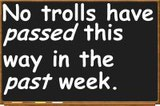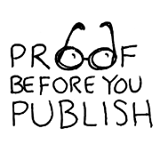Aug 26, 2014 | Tuesday Tips |
A cord can be many things. It can be a string or rope, an electrical cable, or a measure of wood equal to 128 cubic feet. It can also be a ribbed fabric (like corduroy), or one of several types of cords found within the bodies of animals (the spinal cord, the umbilical cord, and the vocal cords).
A chord is typically a musical term denoting any combination of two or more pitches played at the same time. It can sometimes refer to an emotion as well.
Aug 12, 2014 | Tuesday Tips
When I am reading a book, there are a few errors that can send me over the edge. Spelling errors? Of course. Homophone errors? Sure. Using an incorrect word over and over again? Absolutely!
Taut and Taunt may sound the same,but these words have very different meanings and are NOT interchangeable.
Taut: tight, pulled firmly; tense
Taunt: to say insulting things to (someone) in order to make that person angry; to tease sarcastically, ridicule or jeer
Jun 24, 2014 | Tuesday Tips
Worse and worst are often misused in the English language. Here is a simple definition describing when to use them correctly.
Worse: Use worse to compare two things. Think of it like better only in the negative instead of the positive.
Example: My husband’s singing is worse than mine.
Worst: Use worst when one thing is inferior to something else. Think of worst like best, only in the negative.
Example: My husband has the worst singing voice in the world.
***Note: My husband really doesn’t have the worst voice, he just has the worst time remembering the correct lyrics to songs, which is worse.
Jun 17, 2014 | Tuesday Tips
Here is a quick and easy way to remember this Tuesday Tip.
Passed: past tense of the verb pass
Example: He passed the note to the girl in his class.
Past: a noun or an adjective. Noun – the time before the present; Adjective – finished, completed, in the past
Example: You cannot live in the past.
Here is a fun and easy sentence to help keep things clear.

Jun 11, 2014 | Tuesday Tips
Awhile: an adverb meaning, for a time. Or literally, for a while.
Example: Go play awhile.
**In this sentence you can swap out the adverb with another, such as: quietly. Go play quietly.
A while: a noun meaning, for a length of time.
Example: Go play for a while.
**In this sentence you can swap out the noun with a length of time, such as: ten minutes. Go play for ten minutes.
Jun 3, 2014 | Tuesday Tips
This is a common mistake I am seeing more and more often in books.
Shutter– a blind for a window, or part of a camera
Shudder– to tremble in fear
Therefore, you cannot shutter with dread. You shudder.


